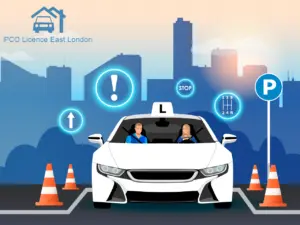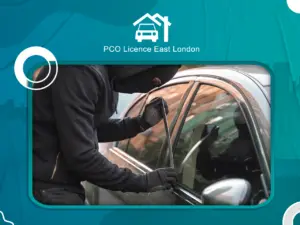In the UK 90% of the CO2 emissions is not only harmful to the environment but to human lives too. Research shows that poor air pollution each year more than 40,000 premature deaths For cleaner air and zero emissions, the Government is has engaged in numerous actions and aiming to reach zero emissions by 2050.
Among all changes, one main step the Government is taken is the banning of petrol and diesel vehicles by 2030. This is a major change and it will have a direct impact on all PCO and private hire drivers. Therefore, it is important that all PCO and private hire drivers know how this ban will have an impact on them.
When will the ban take place and how it will affect PCO and private hire drivers?
By year 2030, in the UK sales of new petrol and diesel vehicles will be banned and PCO and private hire drivers will only be able to purchase electrical vehicles. This means, PCO and private hires drivers will not be able to drive a petrol or diesel vehicle under the new TfL regulations.
What are the reasons for banning petrol and diesel vehicles?
This is due to the CO2 emissions generated by vehicles that run on petrol and diesel and it has already contributed over thousands and thousand of deaths. By banning petrol and diesel vehicles, this will lead to 30% or more decrease in pollution, surpass the health and wellbeing of people as well as theoretically increasing the country’s economy by billions.
Will PCO and private hire drivers be allowed to drive petrol or diesel vehicles after 2030?
In 2023, new emission standards were introduced by TfL as a step towards clear air. This meant that all new PCO and private hire driver need to purchase or have a Zero Emission Capable and meet the Euro 6 emission standard.
Are hybrid vehicles going to be banned in 2023?
From 2035, any new hybrid vehicle sales will be banned and this also includes plug-in hybrid vehicles. Nonetheless, amid 2030 and 2035, drivers can still purchase hybrid vehicles, but only restricted models that can drive on electricity to a certain extent; therefore, PCO and private hire drivers need to ensure they explore their choices before purchasing any vehicles.
Can the National Power Grid handle the upsurge of electric vehicles in the UK?
In order to ensure the National Power Grid manages with the upsurge of electric vehicles, the grid will be advanced to withstand the need to support the change to electric vehicles. In order to cope more efficiently and effectively, it is vital that electric vehicle PCO and private hire drivers can charge their vehicles overnight as the demand for electricity is low.
Are vehicles that will run on petrol or diesel be more or less costly after 2030?
Due to the upsurge of electric vehicles and the ban and Ultra Low Emission Zones, the running cost for a petrol or diesel vehicle will be expensive. Also, the maintenance and servicing will be costly as the spare parts with be rare and hard to find. However, as a result of the ban, petrol and diesel vehicles will be less expensive and the demand will decrease.
Will electric vehicles be more or less costly after 2030?
As electric vehicles are on the upsurge and manufacture costs are reducing, purchasing or renting a electric vehicle will be affordable for PCO and private hire drivers.











